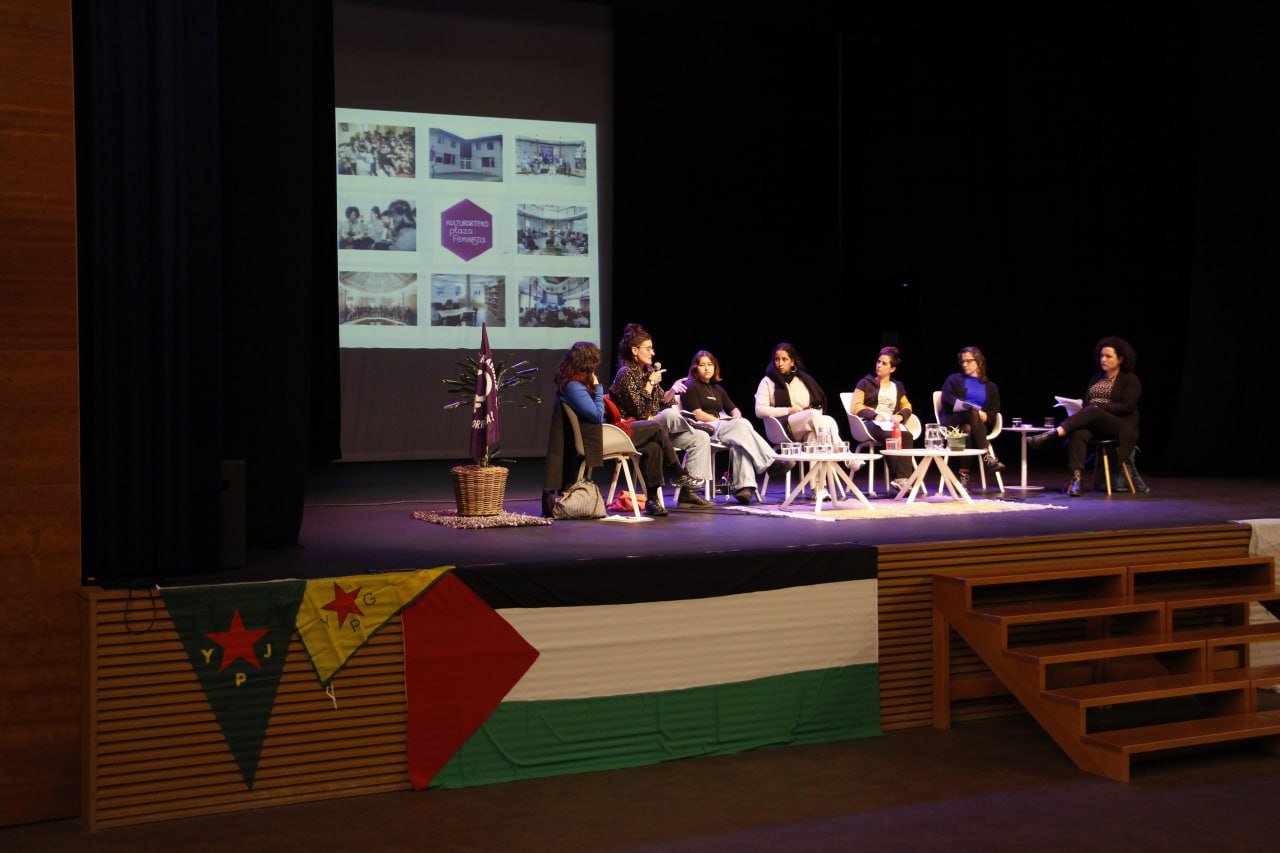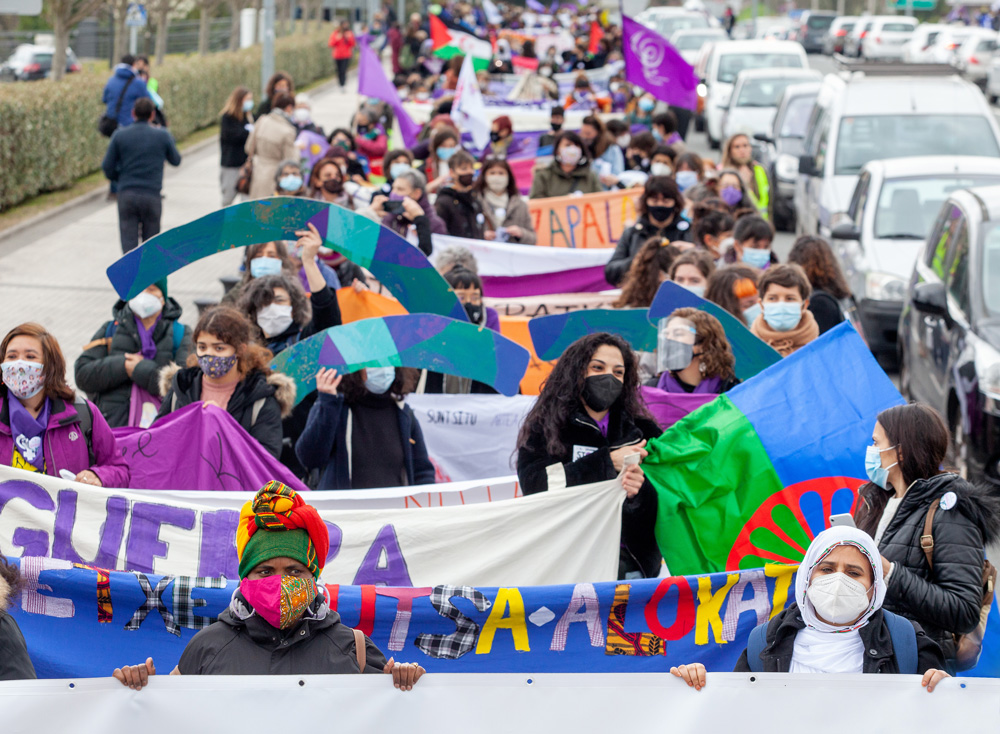Imagine a feminist people
- Imagine you lie down on Friday with the burden of living in a heteropatriarchal capitalist system and with the urgent need to breathe. If you know that the oppressive structure around you, even if it's Saturday, will be there too tomorrow, but instead of the placebo effect of the weekend, you close your eyes. You fall asleep repeating “tomorrow morning” like a mantra.

Imagine that the next day the alarm clock hits a little earlier than usual on Saturdays. Suppose you have a plan to have breakfast with several women* from here and there, and even if there is no atmosphere outside, an impulse forces you to leave the house. After an odyssey of shelters in the Arenal de Bilbao, where the scarf that has been worn for the first time in months and taken refuge to protect itself from rain has been put up in the nose, imagine that in the centre of the Arenal de Bilbao there is an oasis, not one or two, that is headed inwards. Once inside the tent, let’s suppose you are in a space occupied by hundreds of women* of different ages, origins, races and social classes, and once you have breakfast, space until noon is in an atmosphere of dialogue and reflection: let’s say you have to return to the depths of the feminist struggle, the need to reconcile the anti-capitalist discourse to flee the garras of liberal feminism and a redefinition of the perspective of feminist peace.
Imagine that in two or three hours you end up building a circle of bodies that have been given in the morning on the lap, and with a performance that has as its axis the feminist memory, that one takes the other hand and moves to the right of thanks forming a feminist wave while someone recites the following from the microphone: “In the heart, in the eyes, in the throat. When we give our hands, the memory that the official narrative wants to cover is written there.” Imagine that this newly formed wave extends throughout the tent with the intention of eating with the products produced by women, and that until it is transformed into energy the table is mitigated by female musicians and playwrights.
It has been imagined that the violet wave that was created recently is gaining strength and that by the afternoon it becomes a strong tide, “Join forces, we go far! To the sovereignty of our bodies and our territories!” It is a mobilization that runs its way above the low temperatures and occasional rainforests, in which many actions are carried out, including to reclaim feminist self-defense, to denounce the neoliberal city model, to defend the rights of migrant women and to recognize the anti-fascist struggle of women. One step further, let us turn to the fact that this is a demonstration that manages to materialize the demands and the complaints, and that at the moment when the Ertzaintza retains two activists, the protesters interact with cries of “feminist self-defense”, interrupting the journey until they leave.
.jpg)
Imagine that despite police persecution and bad weather conditions, the tide does not lose strength and returns to El Arenal with rain and humor, forgetting for a while the unforeseen events that have occurred on the road when arriving at port and giving way to the celebration. It illustrates how many women rise to the stage and how through them the claim of popular, anti-capitalist, anti-colonialist and radical feminism is dispersed. If you put yourself in it, you can also imagine the details of an act that reminds women that they cannot be present because of male violence, because of their incarceration, because of their refugee status, because of their dedication to housework and care, or for any other reason, as well as the festive atmosphere that has prevailed after the force and motivation it has conveyed.
Imagine now that the assumption and representation of this text has more than reality than speculation, and that everything that was imagined actually happened last Saturday in the Arenal of Bilbao. This representation of a transformation of reality in which we live most clearly positive is the XI Congress of the World Women's March. In the framework of the Feministon International Meeting, it flourished in Bilbao, as it is only a story of the people. On October 27, the colleague of the World March of Women of the Basque Country, in full display of strength, managed to represent the feminist Basque Country within this new world that we carry in our hearts. This could be expected of those who have worked for a week in the configuration of networks and strategies at the global level to deal with the heteropatriarchal capitalist system and the violence it exerts on lands, bodies and communities. Along with women* from 36 neighbouring countries from 22 to 28 October, the final statement was made public: “With feminist fraternity, we resist living, we are on the move to transform.”
Members of Topatu.eus made a video with what gave them the day:




















